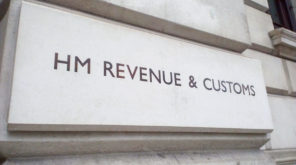How are companies going to meet their payments as the VAT deferral scheme ends?
Following an announcement from the Chancellor on 20th March 2020, VAT registered businesses in the UK have been permitted to delay the payment of any VAT return liabilities that were due between the dates of 20th March and 30th June 2020.
For those companies who chose to hold off on paying their VAT payments during this period, they were allowed to defer without additional interest or penalty fees.
Businesses still had to submit their VAT returns by the scheduled date, but the fees due during this period can be deferred until any date up to 30th March 2021.
It is worth knowing that if you had intended to defer payments at any point between 20th March and 30th of June but didn’t manage to cancel your direct debit for that period, you may still be eligible to claim a refund.
We provide more details on that process here.
VAT payment changes from 1st July 2020
Given that the VAT payment deferment scheme ended on 30th June, HMRC are keen to state that any company in the UK who utilised the coronavirus crisis easement provisions to defer their VAT payments must now ensure that they;
- Reinstate their direct debit/s to allow HMRC to receive payment from 1st July onwards;
- Continue to submit their regular VAT returns on time; and
- Make sure that they pay any VAT payments due after 30th June in full.
Advice on catching up on your VAT liabilities
Clearly, many companies are now facing a situation where they not only need to meet their ongoing VAT payments as and when they are due, but they also need to have a plan in place for how they are going to catch up on their deferred payments on or before 30th March 2021.
Some businesses may look to delay all of the deferred amount until the final due date, others may look to up their monthly payments to HMRC in order to catch up in instalments over the next nine months. Whichever method a company chooses, there will undoubtedly be additional financial challenges on cashflow during this difficult time, even as lockdown restrictions ease.
If a company identifies that they are going to find it very difficult to catch up on their VAT payments by the required date, it may be possible that HMRC agree to a time to pay (TTP) arrangement with HMRC, but you should apply as soon as you realise there may be an issue.
What are HMRC expecting from businesses?
In simple terms, HMRC will want you to provide evidence that your business has not been able to raise funds elsewhere. In addition to this, they will expect a clear and realistic strategy for how your company proposes to meet the designated repayments agreed in any TTP arrangement.
You are much more likely to get a sympathetic response from HMRC if you approach them and you are able to offer a well presented case that includes evidence in relation to how your company is navigating its current cashflow challenges.
If you need advice on how to go about this, our team of experts have a wealth of experience in liaising with HMRC on behalf of our business clients. We can even assist our clients with the negotiation of their TTP arrangements if required.
If you are unsure whether your business can meet its VAT payments, whether the ongoing amounts due from 1st July 2020 or any deferred payments, please contact us today. We’re also available to discuss a range of financial solutions such as Administration and CVAs if you email enquiries@theinsolvencyexperts.co.uk or call us on 0300 303 8284.

